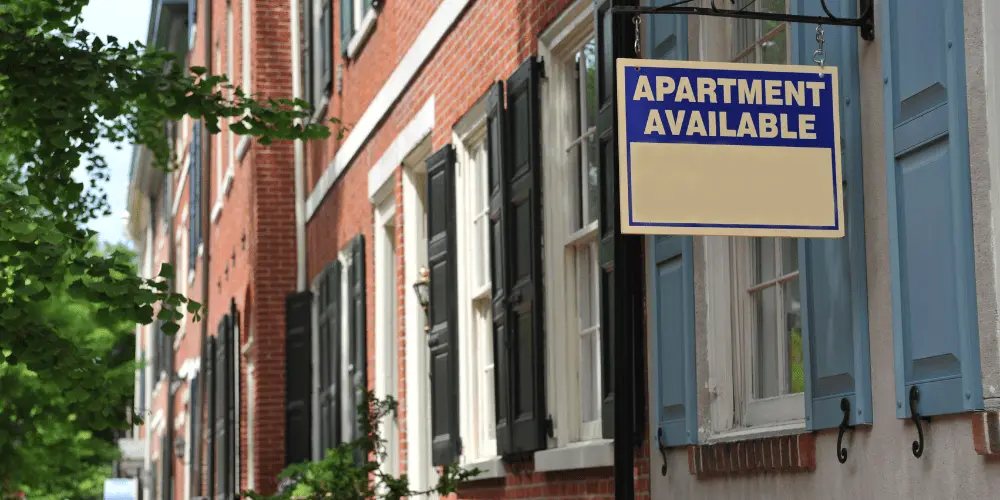
Finding a safe and affordable place to live is one of the biggest financial challenges families face. With rising rents across the country, it is more important than ever to know how to search wisely, understand your options, and avoid common mistakes. This guide will walk you through every step of apartment hunting on a budget, from setting your price range to moving into your next home.
Affordable rent usually means spending no more than 30 percent of your income on housing. Still, that number should be adjusted based on your real situation. Start by writing down all your monthly expenses, including utilities, transportation, food, and insurance.
When you add up these costs, you can see how much is left for rent. Keep a note or checklist to make sure you do not miss anything. If the rent you want would force you to choose between groceries and bills, it is not truly affordable.
Budgeting 101 from Credit.org can help you manage your living expenses before you commit to a lease.
Affordable housing can come from different sources. Some apartments are set aside as affordable rental housing through government tax credit programs. Others are managed by nonprofit organizations that serve low income families, seniors, or residents with disabilities.
To find opportunities, start by using the HUD Resource Locator or your city’s housing authority website. Each page lists available programs, explains who is eligible, and offers instructions to apply. Explore multiple sites, compare the market in your area, and check listings often, since openings can fill quickly.
If you are unsure whether you qualify, reach out directly to the program. Many offices will answer questions by phone or email, and can help you find the right section of their website.
Public housing is offered by local housing authorities and is designed for families, seniors, and people with disabilities. These programs accept eligible residents who meet income guidelines and provide safe apartments at a reduced price.
Another option is the Housing Choice Voucher program, commonly called Section 8. Instead of living only in public housing, you can rent from a private landlord and pay part of your income toward rent. The rest is covered by HUD. Veterans may qualify for the HUD-VASH program, which adds supportive services to a rental voucher.
Keep in mind that waiting lists can open and close quickly. If you see an announcement about new openings, apply right away.
Learn more about these programs at HUD’s Public Housing page or get personalized help through Credit.org’s housing counseling.
Large cities like Chicago, IL have thousands of rentals, but not all will fit your budget. Use online search tools to filter by location, price, and apartment size.
Once you find a good match, keep track of details in a note or spreadsheet. Write down the rent, lease length, security deposit, and landlord contact information. Talking with people who already live in the neighborhood can also give you insight into safety, transportation, and services nearby.
Before you sign, always tour the unit in person. Check by hand for sanitary and safety issues: running water, working smoke detectors, secure locks, and clean hallways. If you see peeling paint, pests, or broken appliances, ask how and when they will be fixed.
Review the lease carefully. Ask questions about what services are included in rent, and how quickly the landlord will respond to maintenance issues. A written record will protect you if disputes arise later.
Your state’s attorney general website often posts a reference guide for renters that can help you understand your rights.

Affordable rental housing is only one part of the puzzle. Moving can be expensive, especially when landlords ask for first month, last month, and a security deposit up front. To lower costs, ask if the landlord will accept smaller payments spread over time.
You can also buy secondhand furniture, choose a smaller unit, or share with roommates. These simple steps help you manage expenses while you settle into your new home.
Strong applications rise to the top. Landlords want to see references, proof of income, and a steady rental history. Include all required documents and double-check before you submit.
Message the landlord if you have questions, and use email to send forms or pay stubs. Being polite and professional increases the chance that your application will be accepted quickly.
Sometimes, even the best applications are denied. You may be unable to qualify because of credit issues, limited income, or lack of rental history. In that case, consider alternatives like having a co-signer, offering a larger deposit, or applying for shorter leases.
You can also seek assistance from local nonprofits, rental aid programs, or 211.org. Many residents have been in your shoes and found solutions with the right support.
For direct guidance, Credit.org offers Distressed Renter counseling, where counselors answer questions and help you explore your options.
Certain groups receive priority in many housing programs. Veterans can apply for HUD-VASH vouchers that provide both rental help and supportive case management. Seniors and families often qualify for special programs or units reserved just for them.
Check with your local housing authority to see which programs currently have openings.
Scammers prey on renters by creating fake listings. Be cautious if a website asks for money before you tour the apartment. Never click on suspicious links or send payments through unsecure apps.
Legitimate landlords will give you time to review the lease, answer your questions, and provide a physical address you can check. If something feels wrong, walk away.
The FTC’s rental scam alert is a valuable resource.
Once you sign the lease, continue to manage your rental wisely. Negotiate small perks, like free parking or utilities included. Keep a record of every issue and service request, and follow up in writing if repairs are delayed.
Good communication with your landlord helps prevent problems and can save you money in the long run.
Moving into your next home requires planning. Start by creating a timeline for packing, movers, and utility hookups. Reach out early to service providers like internet and electricity companies.
Give yourself time to settle in, and keep important documents close at hand. Careful planning reduces stress on move-in day.
Here are some trusted websites and pages you can keep as a reference:
Bookmark these links, and check them whenever you have questions or need updated information.
Apartment hunting on a budget takes effort, but with patience and planning you can find a safe place to call home. Set a realistic budget, explore affordable housing programs, and protect yourself from scams. If you are unable to qualify right away, remember that assistance is available, and many residents have overcome the same challenges.
To make the process easier, Credit.org offers tools and counseling designed to help you succeed. Learn more through our Rent 4 Success program and take your next step toward stable housing today.